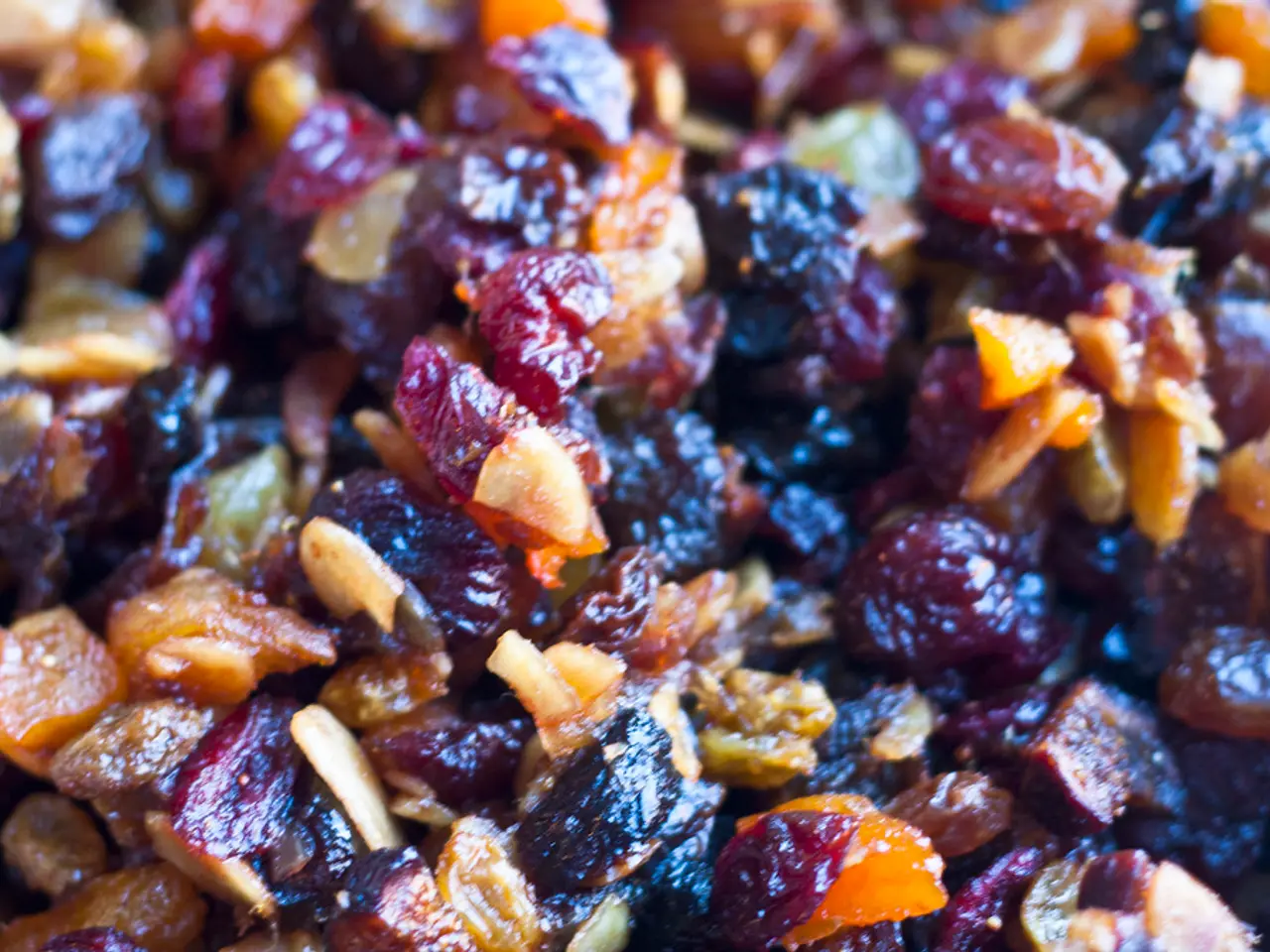Dietary Guidelines for Chronic Obstructive Pulmonary Disease (COPD): Consuming recommended foods, avoiding restricted items, and following a customized meal plan for management
For individuals living with chronic obstructive pulmonary disease (COPD), maintaining a well-balanced diet can significantly aid in managing symptoms and improving overall health. Here are some recommended dietary guidelines to consider:
## Hydration is Key
Adequate hydration is crucial for individuals with COPD. Aim to consume 8 to 12 cups (64 to 86 oz) of caffeine-free liquids per day, which can include water, milk, and fruit juices.
## Protein and Calories Matter
Incorporating high-protein foods into your diet can help support muscle strength and maintain a healthy weight. These foods include poultry, meats, cheese, legumes, nuts, and seeds. High-calorie snacks such as peanut butter, bean dips, and cottage cheese can also be beneficial, especially for those who are underweight.
## Nutrient-Dense Foods are Essential
Foods rich in omega-3 fatty acids, such as salmon and mackerel, whole grains like oats and brown rice, and vegetables like spinach and kale are all recommended for their nutritional content.
## Inflammatory Potential Matters
A diet low in inflammatory potential can help protect lung function. Avoid foods that may increase inflammation, such as those high in processed meats and sugars.
## Macronutrient Balance is Important
While there is no one-size-fits-all macronutrient plan, some specialists suggest a high-fat, high-protein, low-carbohydrate diet, like the ketogenic diet, which may reduce inflammation and improve breathing.
## Tailor Your Diet to Your Needs
It's essential to tailor your diet based on personal preferences and health needs. Consulting with a healthcare provider or dietitian can provide valuable, personalized advice.
## Eating Habits Matter
Eating smaller meals, such as four to six smaller meals instead of three large ones, can reduce stomach fullness and associated pressure on the lungs.
By following these dietary guidelines and making lifestyle changes such as regular exercise and quitting smoking, individuals with COPD may find improvements in their lung function and overall quality of life. A sample meal plan for someone with COPD includes oatmeal with strawberries, blueberries, and almond butter for breakfast, boiled egg and fresh sliced vegetables for a snack, grilled chicken breast with salad and new potatoes for lunch, mixed nuts for another snack, grilled salmon with quinoa and zucchini for dinner, and Greek yogurt with pumpkin seeds and berries for dessert.
- For individuals battling ankylosing spondylitis, a type of inflammatory arthritis, adopting a diet that reduces inflammation can potentially improve symptoms.
- Psoriatic arthritis, a chronic health-and-wellness condition, may be affected by the carbohydrate content in the diet, making it crucial to monitor sugar intake.
- In the case of HIV, a disease that weakens the immune system, maintaining a balanced nutrition is crucial, ensuring enough consumption of proteins, vitamins, and minerals.
- For those dealing with diabetes, a predictive analysis of their diet might be beneficial to manage their blood sugar levels effectively.
- Asthma management often involves recognizing potential triggers, and certain chemical-laden foods like processed meats or high-sugar products can aggravate symptoms.
- An individual living with migraines might want to avoid certain migraine-triggering foods such as aged cheeses, pickled foods, and nuts, as they can cause headaches due to high tyramine content.
- Since COPD and other chronic-diseases like sepsis can impact the body's ability to absorb nutrients, it's essential to try and maintain a high-nutrient, easily-digestible diet.
- When dealing with medical-conditions like obesity, incorporating healthy fats, lean proteins, and fiber-rich foods into your diet can support weight loss and overall wellness.
- For avid fitness-and-exercise enthusiasts, a diet rich in complex carbohydrates like whole grains and sweet potatoes can fuel workouts and aid in muscle recovery.
- In science, research continues to unveil the interlink between diet and various aspects of health, such as the correlation between chronic-diseases like COPD and nutritional factors.




